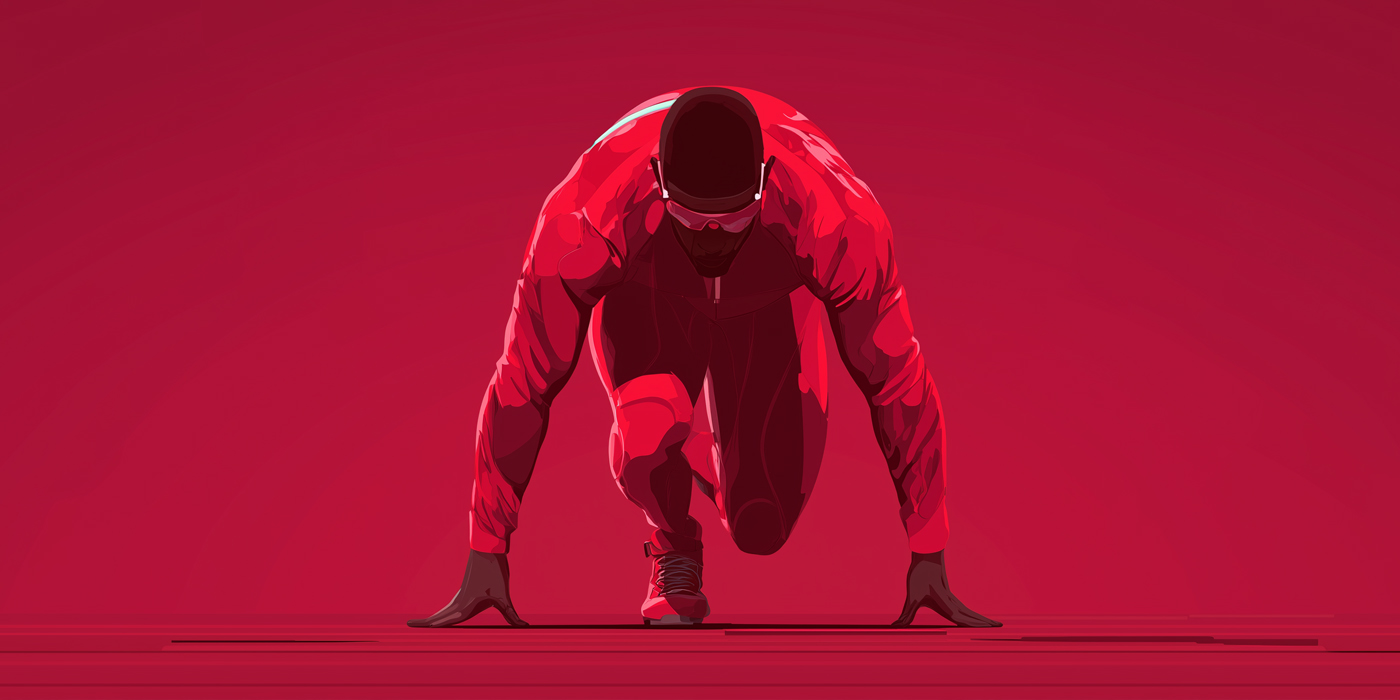On the outside, my early life looked like an episode from a Fifties sitcom. I was the third of six kids. My mom stayed at home, organized the family chores, baked bread every week, and had a hot dinner on the table every night when my dad came home. My dad worked all day, came home at six, and was home every weekend. He helped us fix our bikes and do our homework.
However, there were some distortions in this seemingly happy picture that created an immense anxiety inside of me. Both of my high-functioning parents struggled with mental health. My dad was often depressed and critical. My mom was nervous and fearful, and she was quick to rely on me for the emotional support she wasn’t getting from my dad. I was often nervous and uneasy, and like my mom, I was starved for masculine attention. Life seemed hard; I was rarely comfortable. Every day felt like boot camp, just to survive.
In elementary school I was obsessed with cute girls and pestered them until they were uncomfortable. I felt excited, thinking that one of them might like me or think I was special. Then one night when I was nine, I saw male strippers on TV and watched all the ladies go crazy over their bodies. I was instantly hooked and subconsciously found what I most desired: to be lusted after.
When I was 11, a male substitute teacher taught the boys in my fifth grade class how to masturbate. I was hooked. Masturbation soon became a daily ritual. As puberty set in, I obsessed over my body and the idea of becoming a sexy male. I masturbated compulsively and lived in a fantasy of naked men. I had no access to pornography except for clothing catalogs and a creative mind—but I got along just fine without it.
Friendships with girls came easy for me. I became skilled at getting their attention. My insecurities as a male and over-attachment to my mother made me a perfect candidate to be every girl’s best friend. The boys started excluding me and I began to feel less like a boy and more like a girl.
I wanted so much to be one of the guys, and I constantly watched them and studied their behavior so I could change what I was doing wrong and be accepted. I constantly compared myself to other guys and hated my body—I never felt adequate. I was never very strong or fast as a boy and was often ridiculed for my lack of athletic ability.
Still, I learned many things in my studies of men. I became a master of being who I thought others wanted me to be. I became a master at pretending. I lost touch with my real self altogether and gave away my power to others. I masturbated four times a day, became a constant voyeur, and began lying, stealing, and deceiving to feed my lust.
My attraction toward women began to fade and my longing for male companionship grew, but I was 19 before I could admit to myself that I might be gay. I had no other explanation for my thoughts and feelings. In my early twenties I suffered a nervous breakdown. With the help of therapists, doctors, and church leaders, plus the support of my family, I avoided being hospitalized. However, I awoke to the reality that I could not do anything to change my situation. I was sick and I was stuck. After the nervous breakdown, my energy and stamina were even more depleted.
I began to relearn how to function in life, but it was difficult and discouraging. I continued masturbating compulsively and lived in my fantasy world. I wanted to be gay. I wanted a man to love, who would love me back. I wanted more than anything to be strong and healthy and lusted after.
By age 23, I discovered the Internet. I also discovered adult bookstores, online hook-ups, and many other ways to act out.
When I was around 27, I “came out” to my parents, church leaders, and select friends and siblings. I had worked hard to fight these urges using every tool my church and therapists could provide, but nothing worked. I felt I had no other option than to accept that I was gay. The more I tried to stop, the more my addiction escalated. I estimated that in a five-year period, I had between 100 and 200 sexual encounters, most of them with different partners.
When I was 33, my addiction took me to a dark and sketchy gay sex club. The night before, I met my “dream” acting-out partner online. I had arranged to play out the perfect fantasy, and it played out just as I planned it to the last detail. But when it was over, I felt empty. It wasn’t real. I had just acted out my ideal fantasy and felt lower than ever. Desperate to escape this feeling, I ended up in one of the most degrading places I had ever been.
My addiction had escalated once again. Sex clubs became my new obsession. I began feeling a deeper blackness and desperation. I could see that my addiction would never be satisfied. I felt out of options. I wanted to die.
A friend who knew what I was going through gave me the phone number for our local SA hotline and suggested that I call it. I was afraid to call. I had no idea what lay beneath my sexual behavior or what fueled my obsession for men. I longed for a place to belong but was sure that the men of SA would not understand my issues with same-sex acting out. I was positive that they would not understand my desire and longing to be romantic with men.
When I first began attending meetings, I was determined to keep my homosexuality a secret. I felt that I just needed to get in, get well, and get out. I had a life to live, or so I thought. It wasn’t until I heard another sexaholic share about his sexual acting out with men that I felt like I might be “home.” I was so touched and encouraged that I went right home and acted out! I was baffled. With tears in my eyes, I called the one guy in my home group who was sober and asked him to be my sponsor.
If there had been any other choice I would never have called this man. He symbolized everything I resented about men. He was a rough-talking, hard-nosed, tough-guy farmer. This was the type of man who usually rejected me. I had nothing in common with guys like him! But, since it was him or death, I had no other choice. The day I asked him to be my sponsor I masturbated for the last time. That was nearly two years ago.
Out of desperation, I committed myself to the program and was able to trust my sponsor with my story. Shaking and trembling, I began to do what he asked. He asked me to make calls every day. He said that he didn’t know anyone who got sober making less than three phone calls a day to different guys in the program.
This made my heart pound, my hands shake, and tears roll down my cheeks. I feared men and their rejection above all else. If my own father couldn’t tolerate my neediness, how could I ask these men to do so? This was one of several hard things I had to do which in the end nourished my growth.
I was also asked to go to three meetings a week and attend regional retreats and Intergroup meetings. These activities required me to let down the barriers around myself and be known as I really was. I found that the men I reached out to responded positively to me, and I soon discovered that many other members admitted to same-sex acting out. No one seemed uncomfortable with me. Still, none of those guys ever talked about same-sex lusting, and once again, I told myself that I was different.
I told my sponsor that I felt “uniquely” gay, and that I struggled to know how to proceed with my program. He chastised me and said sharply, “Stop trying to make yourself different! You acted out with men and I shot up with cocaine, but our addiction to lust is the same.” On another occasion he said, “You need to drop the stigma against yourself about being gay. Don’t worry about whether or not you are gay. Ask God to show you. In the meantime, you just need to stay sober today.”
Those simple words were life-changing for me. My sponsor gave me permission to just be me and just live in the moment. I accepted my addiction. I accepted my attraction to men. I continued in my Step work, and my Higher Power began to open my eyes.
While working the Steps, I began to see many ugly things about myself. I came to realize that all the things I hated in others were also defects in me. I came to realize that I had hurt others in all the same ways that I had been hurt. I always blamed others for my problems, but now I saw I was no better than anyone else. I was equally sick. I never could have looked at these things without the reassurance that I belonged and was accepted. Before I came to SA, I hated myself so deeply that I could never bear to admit my faults to others. I could not bear to look at anything ugly about myself.
In SA, I was challenged “to develop transparent honesty of complete self-disclosure” (SA 189). I learned to be transparent about who I was, where I had been, what I am, what I thought, and how I felt. Today I value transparency as a sacred quality and believe that my willingness to be transparent is largely what opened me up to a Power greater than myself. I found that meetings were most helpful when I strove to be 100% honest and say the things that were hard to say.
By working the SA program and following my sponsor’s directions, I found a new way of relating with men. Instead of lusting after them I found a spiritual connection with them. In place of sexual objectification I found brotherhood. I became “part of,” instead of “apart from.”
I accepted service opportunities as they came. Each one caused me to shake with fear. Facing my fears has been one of the key factors that has opened me up to brotherhood. About a year into sobriety, I had my first sex dream about a woman. Unbeknownst to me, my attraction toward women was growing. God showed me that my seemingly romantic and affectionate feelings toward men were actually based in fear and resentment. I was not having sex with men because I loved them, but because I was angry.
As I worked my Fourth Step, God began to take away the resentments toward men in my past. Same-sex attraction began to fade. SA is the only place on earth I am aware of where I could expose my emotions to other men and thereby surrender them to God. In this I found connection to a Power greater than myself.
The outcome was undeniable. I remember a spiritual experience when I felt my Higher Power was communicating with me. If I were to put it into words it would be something like this: “Jared, what does sex have to do with your desire to connect with men? I designed you for brotherhood and placed that longing deep within you. It is not going away. This longing for brotherhood was meant to be realized. It was fear, resentment, and addiction that told you this longing was about sex.”
Today, after almost two years of SA sobriety, I no longer identify with being gay. I feel more masculine and more a part of masculinity than ever. I feel more connected and useful to men than ever. In the words of a fellow sexaholic, “I can show up as a man for a man.” What a gift! SA is helping me to be the person God intended me to be and helping to fulfill my deepest desires.
I have not recovered perfectly. Many days I still feel attracted to men. Any time I try to do something that scares me, my first reaction is to crave sex with men. It is always the first place my mind goes whenever I feel scared, weak, alone, or overwhelmed. But despite my diseased thinking, I continue to surrender my right to use lust and fantasy to manage my feelings. I continue to get transparent with the men in my group and say the things I fear saying. I continue to rely desperately on God to manage my resentments and fears.
My sobriety feels like a delicate flower that could wilt at any time and has at times begun to wilt when I’ve been careless. Yet despite my clumsiness and diseased thinking, I am still getting the gifts of recovery. I just keep trudging along.
Each day of sobriety is a gift of new life. I treasure the gift of masculine connection and have never had it in such abundance. I don’t know whether I will ever have a wife. I don’t know if my attraction to women will continue to grow. I just try to give up my right to sex completely. I try to recognize the miracles that have come to me and remember to be grateful for them. I cling to my sponsor’s words: “You just need to stay sober today, and surrender tomorrow to God.”
Jared R.






